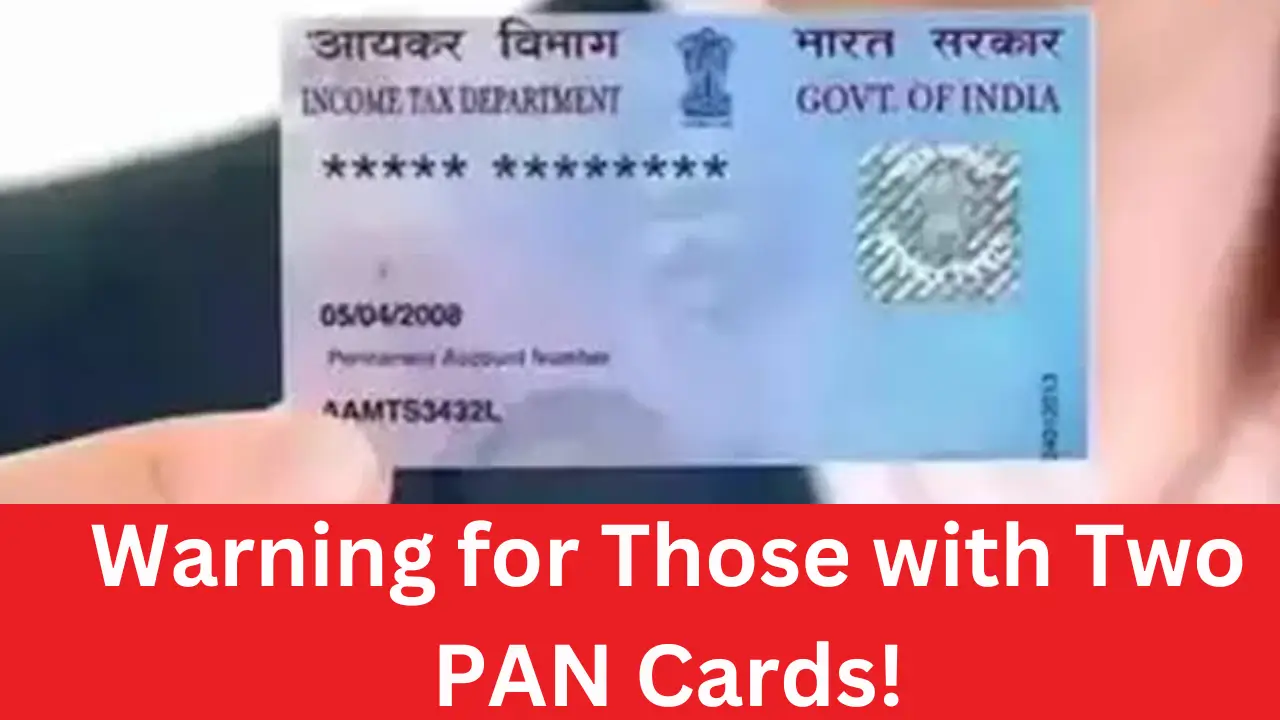
Newsletter Subscribe
Enter your email address below and subscribe to our newsletter

Enter your email address below and subscribe to our newsletter


In India, the Permanent Account Number (PAN) is essential for various financial transactions, including filing taxes and opening bank accounts. However, many individuals may not realize that holding more than one PAN card is illegal and can lead to severe penalties. The Income Tax Department has issued a warning regarding the consequences of possessing multiple PAN cards. If you have duplicate PAN cards, it is crucial to take immediate action to avoid a hefty fine of ₹10,000. This article will provide detailed information about the rules surrounding PAN cards, the penalties for having multiple cards, and how to surrender any extra cards.
A Permanent Account Number (PAN) card is a unique identifier issued by the Income Tax Department of India. It serves several purposes:
According to the Income Tax Act of 1961, each individual can hold only one PAN card. Having multiple PAN cards can lead to confusion in tax records and financial dealings. The government has strict regulations against this practice to maintain transparency and prevent tax evasion.
Holding more than one PAN card is considered a violation of the law. The Income Tax Department views this as an attempt to evade taxes or commit fraud. Therefore, individuals found with duplicate PAN cards may face legal action.
If you do not surrender your duplicate PAN card, you may incur a penalty of up to ₹10,000 under Section 272B of the Income Tax Act. The penalty is imposed at the discretion of the assessing officer (AO) who evaluates your case.
| Violation | Penalty |
| Holding Multiple PAN Cards | Up to ₹10,000 |
There are several reasons why individuals may end up with more than one PAN card:
If you find that you have more than one PAN card, it is essential to surrender the duplicate as soon as possible. Here’s how you can do it:
Surrendering your duplicate PAN card online is straightforward:
If you prefer an offline approach, follow these steps:
To prevent issues with duplicate PAN cards in the future, consider these tips:
What should I do if I have received two different PAN cards?
If you have received two different PAN cards, immediately identify which one is valid and surrender the duplicate using the methods mentioned above.
Can I face legal action if I have multiple PAN cards?
Yes, holding multiple PAN cards can lead to legal action as it violates tax laws in India.
How long do I have to surrender my duplicate PAN card?
It is advisable to surrender your duplicate PAN card as soon as possible to avoid penalties.
What happens if I don’t surrender my duplicate PAN card?
Failure to surrender a duplicate PAN card can result in a fine of up to ₹10,000 under Section 272B of the Income Tax Act.
The importance of having only one Permanent Account Number (PAN) cannot be overstated. With strict regulations imposed by the Income Tax Department, individuals must ensure they comply with these rules to avoid hefty penalties and legal repercussions. If you find yourself with multiple PAN cards, take immediate action by surrendering any duplicates.
The introduction of technology in tracking and managing tax records has made it easier for authorities to identify individuals with multiple PANs. Therefore, staying compliant not only helps you avoid fines but also contributes positively to India’s financial ecosystem.
If you are unsure about your current status regarding your PAN card(s), consider checking with authorized officials or visiting official websites dedicated to tax services in India.
Disclaimer:This article provides an overview of the implications of holding multiple Permanent Account Numbers (PAN) based on available information regarding its features and requirements. For detailed guidelines or specific inquiries about managing your PAN card situation or understanding related regulations further, please consult directly with authorized representatives from relevant government departments before making any decisions related to this topic.